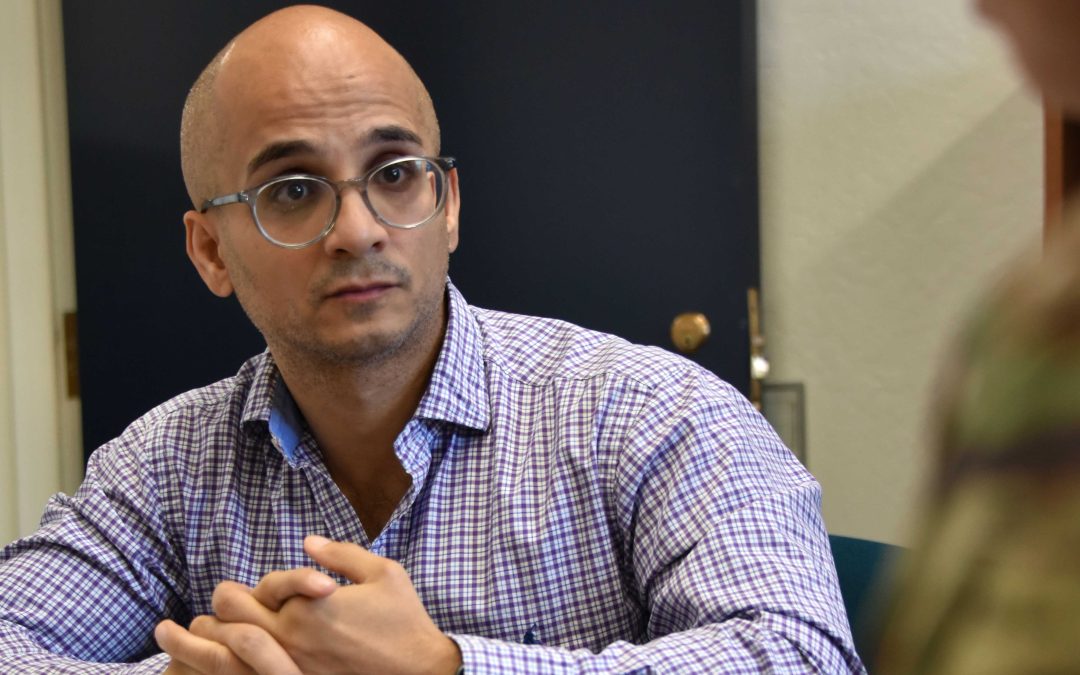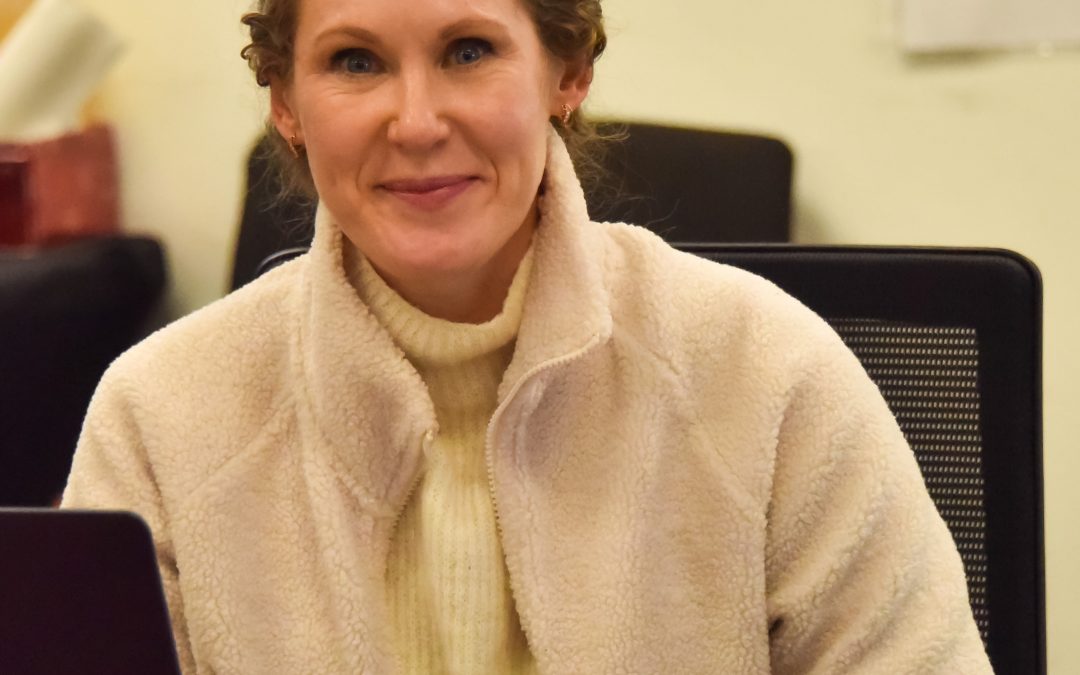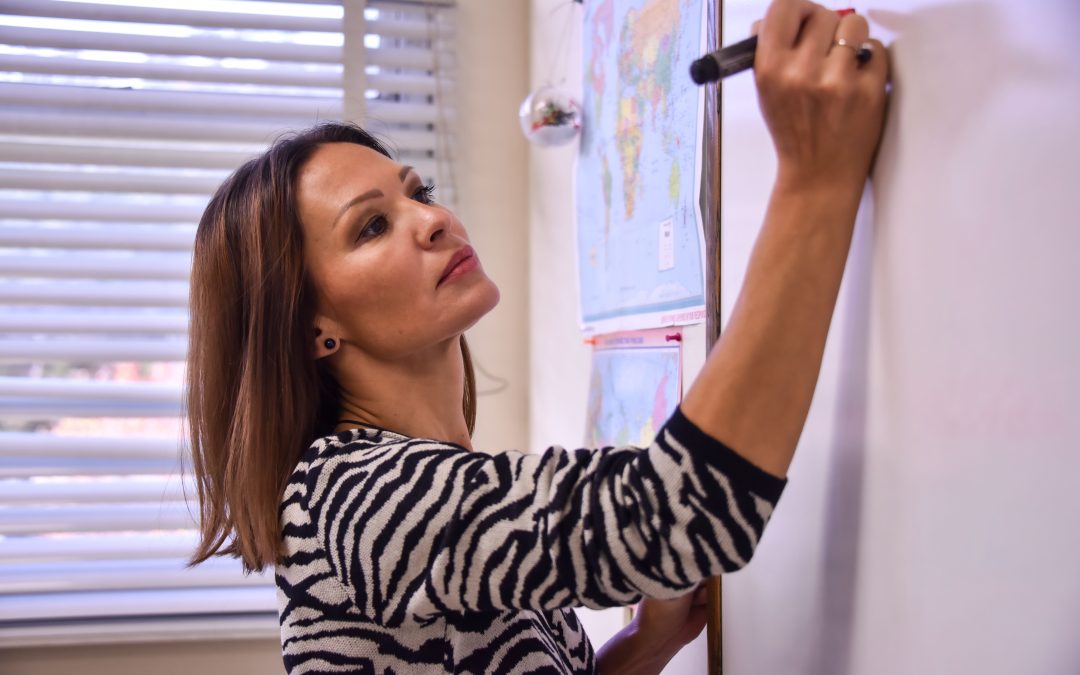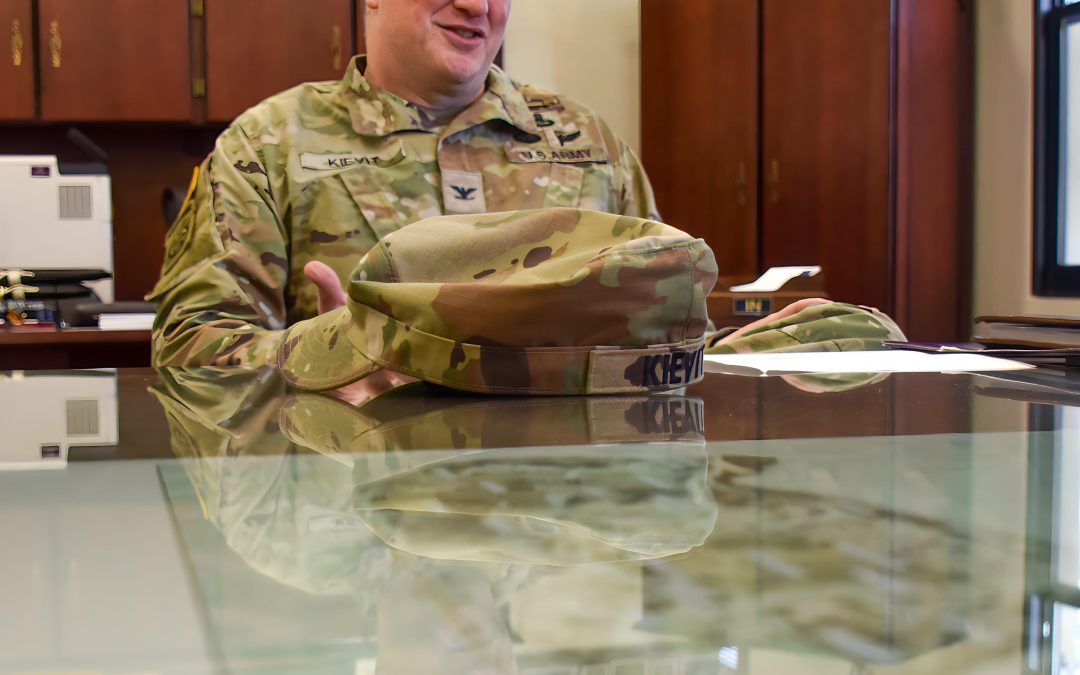MONTEREY, Calif. – The under secretary of defense for intelligence, Dr. Michael G. Vickers, was pleasantly surprised Nov. 3 when he encountered his former Spanish instructor at the Defense Language Institute Foreign Language Center while observing a Spanish language class.

Under Secretary of Defense for Intelligence, Dr. Michael G. Vickers, speaks with his former Spanish language instructor, Dr. Deanna Tovar, whom he had not seen in decades. Dr. Vickers observed a Spanish language class at the Defense Language Institute Foreign Language Center, in Monterey, Calif., Nov.3.
“Although I was able to understand what was being discussed during the class, I was also a little bit worried because I thought I was going to be re-tested in Spanish, which has atrophied somewhat,” said Vickers with a chuckle.
“It was wonderful to see my old student. When I saw his face, it all came back to me,” said Dr. Deanna Tovar, who had just begun her career as a Spanish instructor in the late 1970s and is today dean of the European and Latin American school.
“She was a great instructor and I am not surprised to see her as the dean of the school and that she has done so well,” said Vickers.
As a young Special Forces soldier and then officer, Vickers graduated from the DLIFLC Czech course in 1977 and Spanish course in 1979 with top scores.
His unique experience at the Institute has influenced him throughout his career. Vickers has been credited for contributing to the withdrawal of Russian troops from Afghanistan in the 1980s. More recently, he was recognized as a key leader in the process that led to planning, locating, and killing the world’s most wanted terrorist, Osama bin Laden.
“When I was here for Czech, my professor told us that language is the most intimate expression of a nation’s culture. I know DLI really teaches culturally-based language instruction, and I have certainly found that true when I have used languages operationally as a Special Forces officer and as a CIA officer,” said Vickers.
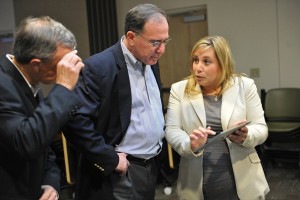
Under Secretary of Defense for Intelligence, Dr.Michael G. Vickers, and Defense Intelligence Senior Language Authority Tim Clayton, look at a working memory application on an iPad for Iraqi language, demonstrated by Dr. Shannon Salyer, DLIFLC Senior Research Scientist Nov. 3. Salyer heads a Brain Fitness research project that is to speed up the vocabulary acquisition of foreign language students.
As principal staff and advisor to the Department of Defense regarding intelligence, counterintelligence, security, and other intelligence-related matters, Vickers has a far-reaching view of how important foreign language and culture are to the future of national security.
“As we come out of a decade of wars, the world is getting more complicated and there is more volatility, for example across the Middle East. Having people with these (language) skills is tremendously valuable. If you are not going to have a lot there, you ought to have your best there,” he said. “I think (language) is really central. Our new defense strategy focuses on Asia, North Africa, and the Middle East region and these skills will be paramount to that strategy.”
Though Vickers fully agrees that knowing some language “goes a long way,” when conducting intelligence assignments or working in foreign countries in various capacities, he insists that high level proficiency is vital for mission success.
“Higher level skill is critical. I have seen a number of times over the course of my career where even 3 Level Russian didn’t cut it on an important national security problem. You needed to be at the 4 Level to really exploit the intelligence that we need,” he explained, referring to the Interagency Language Roundtable foreign language proficiency scale.
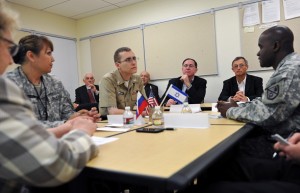
Under Secretary of Defense for Intelligence, Dr. Michael G. Vickers (center), observes students of an upper division 47-week Russian course called the Russian Arms Control Speaking Proficiency Course, which is designed prepare students to work for the Defense Threat Reduction Agency. Dr. Vickers was accompanied by Human Capital Management Director and Defense Intelligence Senior Language Authority Tim Clayton while visiting the Defense Language Institute Foreign Language Center on Nov 3.
Vickers, accompanied by Tim Clayton, the Defense Intelligence Senior Language Authority, and Glenn Nordin, his foreign language and area advisor, also observed an upper division 47-week Russian course called the Russian Arms Control Speaking Proficiency Course. The course is designed to prepare students to work for the Defense Threat Reduction Agency, the DoD’s official Combat Support Agency for countering weapons of mass destruction.
Commenting on all the changes that have taken place at the Institute over the past three decades, Vickers said he was most impressed by DLIFLC’s strategic outreach that takes place in 29 locations around the world and includes sustainment and predeployment training.
As a two-time DLIFLC graduate, Vickers was guest speaker at the DLIFLC 71st Anniversary Ball attended by Institute faculty, staff, and leadership.
Story and Photo Credits:
Natela Cutter, Strategic Communications

